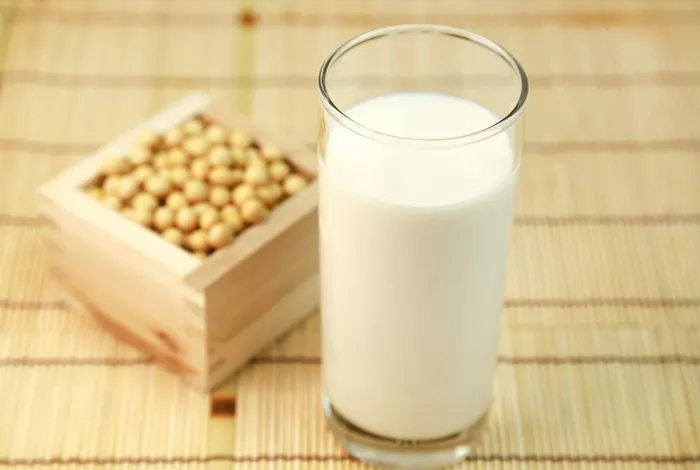Menopause is a natural phase in a woman’s life that marks the end of menstrual cycles, typically occurring in women between the ages of 45 and 55. During this transition, women may experience various symptoms like hot flashes, night sweats, mood swings, and sleep disturbances. These symptoms can significantly affect a woman’s quality of life. Over the years, many women have sought ways to alleviate these symptoms, and one option that has gained attention is soy isoflavones. But, do they really help manage menopause symptoms? In this article, we will explore the potential benefits and risks of using soy isoflavones during menopause.
What Are Soy Isoflavones?
Soy isoflavones are plant compounds found in soybeans and soy-based foods. These compounds are categorized as phytoestrogens, meaning they mimic the action of estrogen, the hormone that decreases during menopause. Isoflavones, such as genistein and daidzein, are the main types found in soy products.
Benefits of Soy Isoflavones for Menopause
1. Reducing Hot Flashes
One of the most common symptoms of menopause is hot flashes, which are sudden feelings of heat and sweating. Studies have shown that soy isoflavones may help reduce the frequency and severity of hot flashes. They can act as a natural substitute for estrogen and potentially ease these uncomfortable symptoms.
2. Improved Bone Health
During menopause, the decrease in estrogen levels can lead to a loss of bone density, increasing the risk of osteoporosis. Soy isoflavones have been shown to have positive effects on bone health by helping to maintain bone density. This can be particularly beneficial for postmenopausal women at risk for bone fractures.
3. Relieving Mood Swings
Estrogen has a direct impact on the brain’s neurotransmitters, influencing mood. As estrogen levels drop during menopause, some women experience mood swings or even depression. Soy isoflavones may help improve mood and reduce anxiety by mimicking estrogen’s action in the brain.
4. Supporting Heart Health
The cardiovascular system also undergoes changes during menopause. A decrease in estrogen can lead to an increased risk of heart disease. Soy isoflavones have been studied for their potential to improve heart health by reducing bad cholesterol (LDL) and improving blood vessel function.
Risks and Considerations of Soy Isoflavones
1. Hormonal Effects
Because soy isoflavones mimic estrogen, some concerns have been raised about their effects on hormone-sensitive conditions such as breast cancer. While most studies suggest that moderate soy consumption does not increase the risk of breast cancer, women with a history of estrogen-receptor-positive breast cancer should consult their healthcare providers before using soy supplements.
2. Digestive Issues
In some cases, consuming high amounts of soy isoflavones may cause digestive problems, such as bloating, gas, or diarrhea. Women who are sensitive to soy products may experience these issues more frequently.
3. Allergic Reactions
Soy allergies are relatively common, and consuming soy isoflavones can lead to allergic reactions in certain individuals. Symptoms can range from mild, such as hives, to more severe reactions like difficulty breathing. It is important for those with soy allergies to avoid soy-based products.
How to Incorporate Soy Isoflavones into Your Diet
Soy isoflavones can be found in various foods, such as tofu, tempeh, soy milk, and edamame. Adding these to your diet can be an easy and delicious way to introduce soy isoflavones into your routine. Soy supplements are also available, but it is always best to consult a healthcare provider before starting any supplement.
Conclusion
Soy isoflavones show promise in alleviating some of the troublesome symptoms of menopause, such as hot flashes and mood swings, and they may offer additional health benefits, including supporting heart and bone health. However, there are potential risks, particularly for women with certain hormone-sensitive conditions or soy allergies. As with any dietary supplement, it is essential to consult with a healthcare provider to determine if soy isoflavones are right for you.
FAQs About Soy Isoflavones and Menopause
1. What are soy isoflavones?
Soy isoflavones are plant compounds found in soybeans, acting like estrogen in the body, which can help alleviate some menopause symptoms.
2. Can soy isoflavones reduce hot flashes?
Yes, studies suggest that soy isoflavones may help reduce the frequency and severity of hot flashes in menopausal women.
3. Are soy isoflavones safe for women with a history of breast cancer?
Women with estrogen-receptor-positive breast cancer should consult their healthcare provider before using soy isoflavones, as they may mimic estrogen.
4. How do soy isoflavones affect bone health during menopause?
Soy isoflavones can help maintain bone density and reduce the risk of osteoporosis by mimicking the effects of estrogen on bones.
5. Do soy isoflavones have any effects on mood?
Yes, soy isoflavones may help alleviate mood swings and anxiety during menopause by mimicking estrogen’s effects on the brain.
6. Can soy isoflavones help with heart health?
Some studies suggest that soy isoflavones may improve heart health by lowering LDL cholesterol and improving blood vessel function.
7. Can consuming too many soy isoflavones cause side effects?
Excessive consumption of soy isoflavones may lead to digestive issues or allergic reactions, especially for those with soy sensitivities. It is recommended to consume them in moderation.
Related topics:
- 9 Benefits Of Hemp Oil For Menopause
- The 8 Best Supplement For Menopause Hot Flashes
- Top 10 Supplements To Take During Menopause


